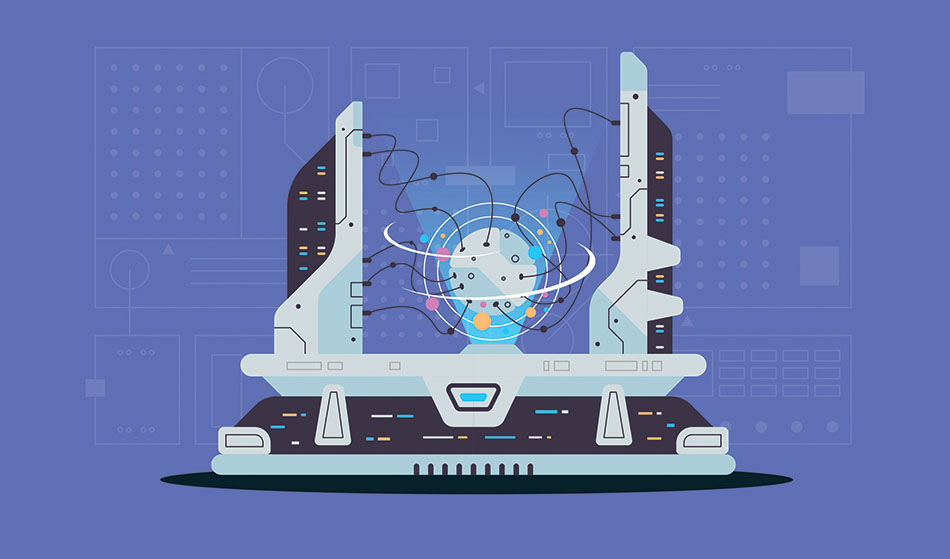
Andrew Derr / Shutterstock
Quantum computing is set to revolutionize almost all industries. These super-fast machines offer any industry that relies on computing, a way to solve problems that are out of the realm of possibility for even today’s supercomputers, to work faster and optimize processes and improve on quality.
The quantum computer can process information at phenomenal speeds as it replaces the transistors found in traditional computers with qubits, which can store information as both 1s and 0s rather than 1s or 0s. This means that it can process computations in parallel rather than linear. With traditional computers, as the number of variables in a computing problem increases, as does the requirement for power and resources. Quantum doesn’t require this exponential growth of power and resources, and not only can it process problems 100 times faster, but it can also process problems that are unsolvable by traditional computers.
Quantum computing will be harnessed by construction in various ways, which we will explore below.
Detection of Corrosion
Quantum opens the doors to creating sensors that are more sensitive and efficient than current ones. In construction, the possibility of ultra-sensitive sensors means that corrosion could be detected more effectively. Corrosion is a fundamental problem in the construction industry, destroying pipelines and bridges.
Sensors could be used to examine the quality of the metal used in construction by detecting small changes in magnetism, which would alert workers to corrosion before current techniques would be able to register it.
More Efficient Surveying
Surveying is a major part of any construction project. The ground planned to be built on must be evaluated, and a detailed account of what’s happening below the surface must be put together. Quantum sensors could theoretically be used to reliably detect pipelines, underground abnormalities or obstructions, or mine shafts and sinkholes before work begins. This would have an impact on saving time and money from delays caused by unexpected obstacles.
Better Planning
To enable efficient planning of the construction of a building, modern construction companies rely on a 3D model process where architecture, engineering, mechanical, electrical, and plumbing plans are taken into consideration along with the sequence of activities. Traditional computers currently process all these information sources to help develop an efficient plan for construction.
However, the current method faces the difficulty of generating plans that do not produce clashes between the different teams. What the industry is now aiming to do is create a system using machine learning that would be able to identify and handle clashes by processing complex algorithms. Quantum computing offers a way to process this information-heavy task swiftly, to generate plans that can be relied on in an instant.
Faster Completion Times
Through using the quantum computer’s superior processing power, solutions can be optimized, and complex problems can be solved rapidly. The construction industry currently relies on computing for planning, surveying, designing, graphics, pre-bidding, budgeting, scheduling, quality and cost control, and equipment management. With quantum computing, all these processes could be completed faster, meaning that project completion times are reduced.
Prospects
Quantum computing is in its very early stages of development, with the first computers just beginning to show the world what they are capable of. It will be a few more years before we see them properly put to work in any sector, including the construction sector. However, when they do arrive, we can expect the impact to be profound, speeding up and simplifying processes, and improving on planning and surveying.
Source
Disclaimer: The views expressed here are those of the author expressed in their private capacity and do not necessarily represent the views of AZoM.com Limited T/A AZoNetwork the owner and operator of this website. This disclaimer forms part of the Terms and conditions of use of this website.